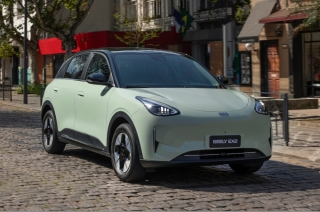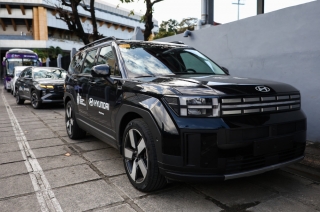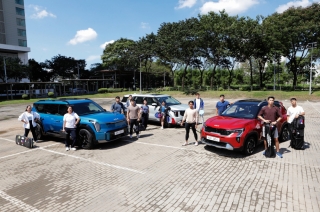Automakers around the globe are now picking up the pace of the production of electric vehicles (EVs), with some shifting into gear faster than others. Mazda is on the slower side of the scale when it comes to electrification. However, this pace is not due to stubbornness but rather a deliberate and cautious approach, with Mazda prioritizing the expansion of its hybrid lineup to align with customer preferences.
During a recent interview with Automotive News, Mazda's CEO, Masahiro Moro, revealed the company's intention to include seven or eight EVs in its lineup by 2030, expecting them to contribute to 25 to 40 percent of its global sales. In comparison to some competitors, Mazda's approach appears less aggressive, influenced by the current uncertainty regarding the demand for EVs.
“Between now and 2030 is the dawn period of electrification — we have to go over this bumpy ride. We just have to deal with the consumer’s needs and wants. Right now, the customer is looking for alternative solutions — other than battery EVs.”
Mazda's upcoming EVs are set to be designed and marketed under the newly established e-Mazda division, utilizing a scalable platform. Details on the type of batteries Mazda will be using are still under wraps, with Moro choosing not to disclose details. There is good news though, according to Moro, Mazda’s engineers are exploring the possibility of providing three different motor sizes, emphasizing the goal of making Mazda's EVs more lightweight and cheaper.
The company has enlisted the services of three battery suppliers, including Panasonic and Envision AESC Japan. Another supplier, Prime Planet Energy & Solutions, is a collaborative effort between Panasonic and Toyota.

Speaking of Toyota, Mazda is set to leverage Toyota's expertise to significantly reduce the investment needed for its EVs. The integration of electronic and automotive software systems, developed in collaboration with Toyota, is slated for implementation in Mazda's EVs starting around 2026. Moro says this collaboration is expected to result in substantial cost savings, amounting to 70 to 80 percent of the total investment costs that Mazda would have incurred if pursuing the endeavor independently.
Though Mazda is leaning heavily on Toyota’s expertise in its electrification efforts, Mazda will continue to retain the in-house development of vehicle platforms. Moro explained, "That is for the sake of Mazda being an independent brand."
Latest News
-
Geely’s EX2 EV headed to Australia — is a Philippine launch possible? / News
The Geely EX2 is confirmed to go on sale in Australia in 2026. Could a launch in the Philippines also be on the cards?
-
Hyundai Motor Philippines is the FIFA Futsal Women's Teams' official mobility partner / News
Hyundai Motor Philippines strengthened its partnership with FIFA through its support of the FIFA Futsal Women's Teams.
-
Kia Philippines backs EJ Obiena as Atletang Ayala continues championing Filipino athletes / News
Kia Philippines strengthens its support for EJ Obiena, backing the Olympian with dedicated mobility at home and abroad.
Popular Articles
-
Electric Vehicles in the Philippines for under P1 million
Jerome Tresvalles · Aug 19, 2025
-
Top 3 Cars For Every Lifestyle—What Cars Are Right For You? | Behind a Desk
Caco Tirona · Apr 24, 2024
-
5 Tips to Maximize Fuel Efficiency
Jerome Tresvalles · Sep 09, 2024
-
Five driving habits that are draining your fuel tank
Jerome Tresvalles · Jun 24, 2025
-
Can engine braking harm your engine?
Jerome Tresvalles · Sep 11, 2025
-
Do electric cars even need maintenance?
Jerome Tresvalles · Oct 23, 2024
-
Best vehicles for an active outdoor lifestyle
Shaynah Miranda · Jul 25, 2024
-
How to drive different types of vehicle transmissions
May 23, 2024
-
5 easy ways to keep your car interior clean
Allysa Mae Zulueta · Nov 15, 2021
-
How to survive Metro Manila traffic
Earl Lee · Aug 16, 2022




